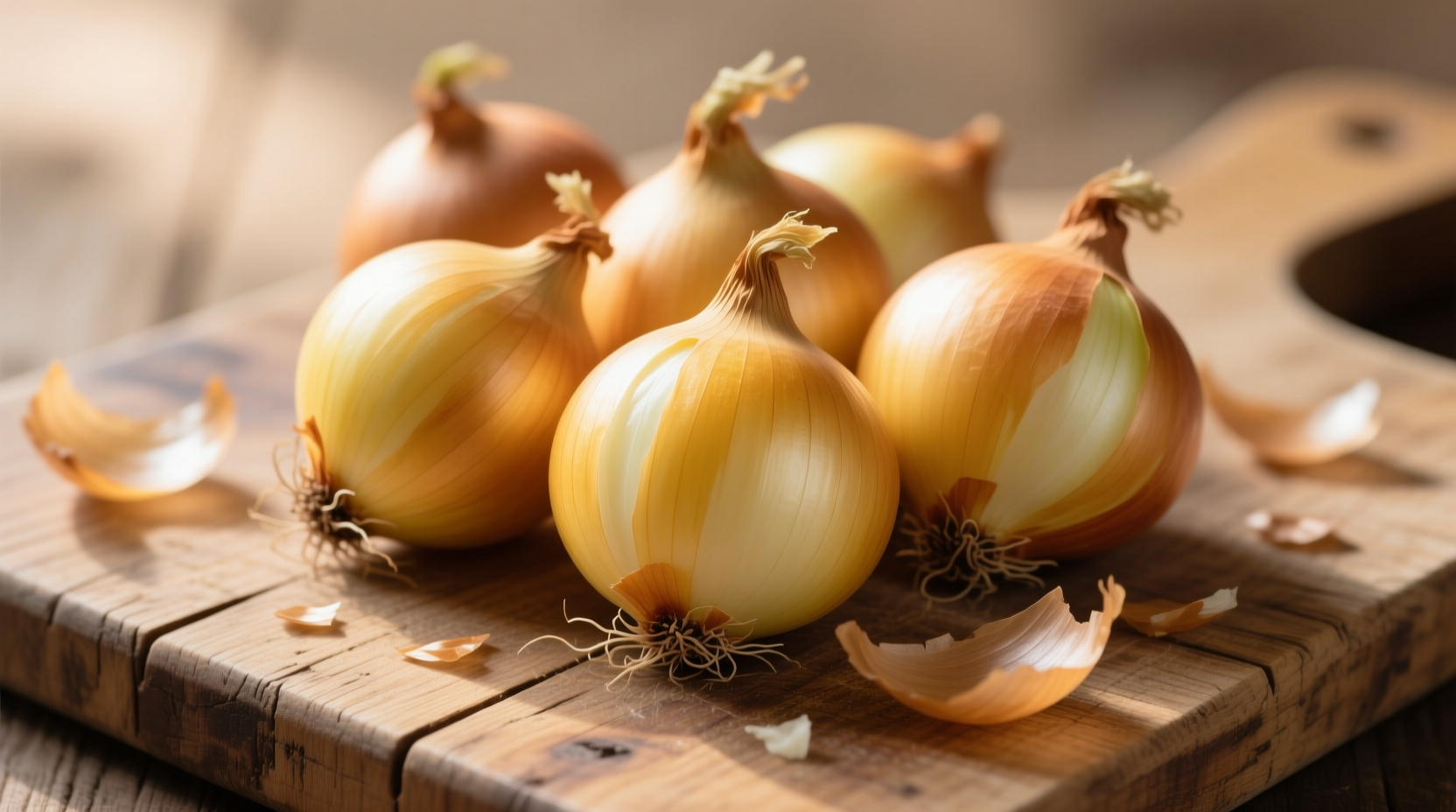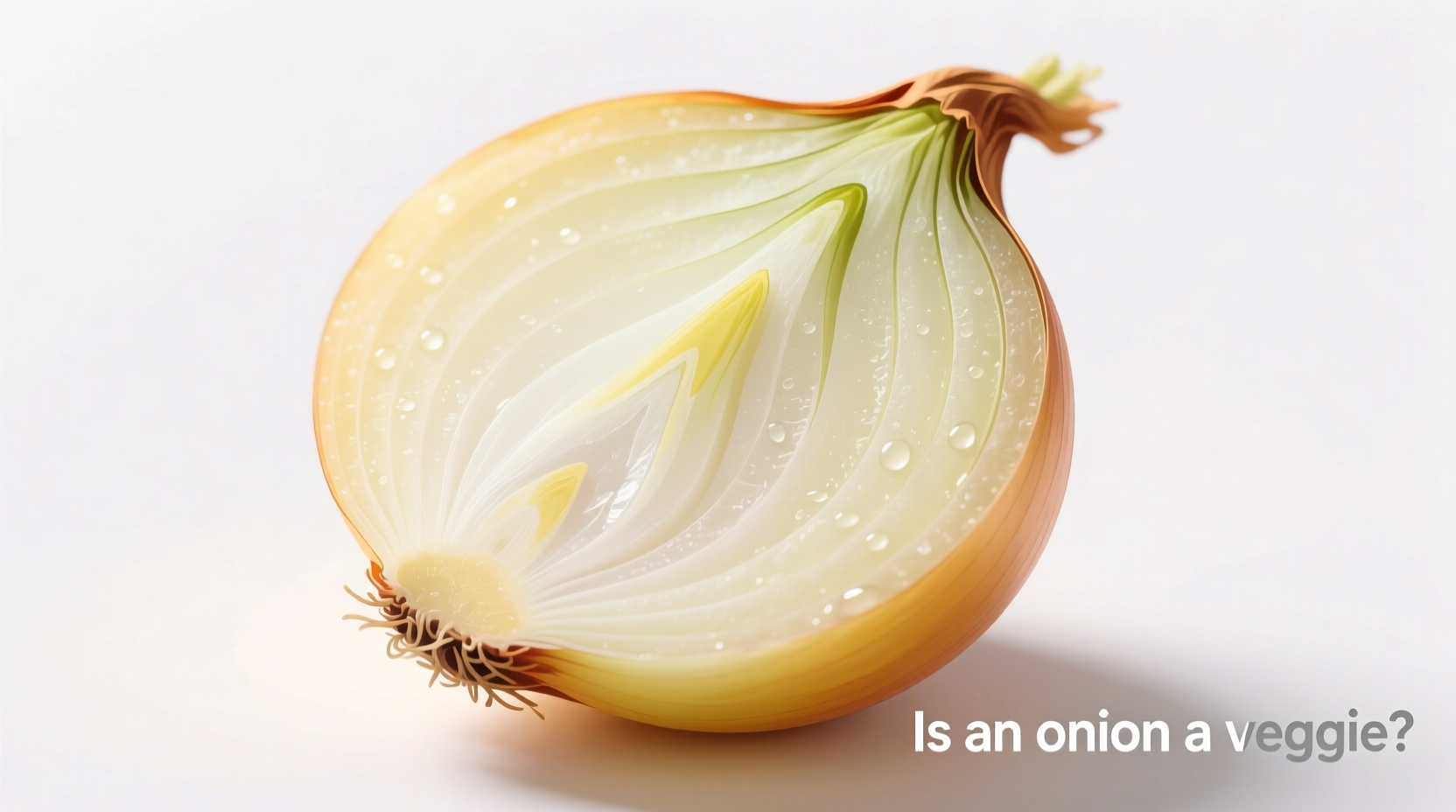The Botanical Truth: Why Onions Aren't Technically Vegetables
When you chop an onion, you're handling what botanists call a bulb—a specialized underground stem structure that stores nutrients. Unlike true vegetables (which come from roots, stems, or leaves), onions develop from modified leaf bases surrounding a short stem. This biological reality creates the first layer of confusion in the is onion a veggie debate.
| Classification Type | Onion Category | Examples of Similar Items |
|---|---|---|
| Botanical | Bulb (modified stem) | Garlic, shallots, leeks |
| Culinary | Vegetable | Carrots, celery, bell peppers |
| Nutritional | Non-starchy vegetable | Cucumbers, zucchini, mushrooms |
How Culinary Tradition Overrides Botany
Chefs and home cooks universally treat onions as vegetables because they function like vegetables in cooking. When exploring is onion considered a vegetable in recipes, you'll find they're used like other vegetables—as flavor bases, roasted sides, or salad components. The USDA's MyPlate guidelines categorize onions with vegetables, reinforcing their practical classification.

Historical Timeline of Onion Classification
The confusion around is an onion a vegetable or fruit has historical roots:
- 4000 BCE: Ancient Egyptians cultivated onions, treating them as staple food (vegetable equivalent)
- 18th Century: Linnaeus established botanical classification system, identifying onions as bulbs
- 1940s: USDA begins standardizing food groups, placing onions in vegetable category
- Present Day: Culinary schools teach onion preparation alongside other vegetables despite botanical accuracy
Practical Kitchen Implications
Understanding this classification duality actually improves your cooking. When you recognize that onion vegetable classification affects storage, you'll keep them in cool, dark places (unlike root vegetables that prefer refrigeration). Their bulb structure explains why:
- They develop stronger flavors when stored near potatoes (ethylene gas reaction)
- They caramelize differently than root vegetables due to sugar composition
- They require different peeling techniques than true root vegetables
Addressing Common Misconceptions
Many home cooks wonder is red onion a vegetable too—the answer is identical to yellow onions. All onion varieties share the same botanical classification. Similarly, the question is garlic a vegetable follows the same pattern: botanically a bulb, culinarily a vegetable.
Nutritionally, onions deliver significant benefits regardless of classification. According to the USDA FoodData Central database, one medium onion provides:
- 44 calories
- 10g carbohydrates
- 2g fiber
- 20% of daily vitamin C needs
- Antioxidants like quercetin
Why This Matters for Home Cooks
Knowing the truth behind is onion a veggie for cooking purposes helps you make better culinary decisions. When recipes call for "aromatic vegetables" (mirepoix, sofrito, or holy trinity), onions function identically to carrots and celery despite their different botanical origins. This practical equivalence matters more than scientific precision in the kitchen.











 浙公网安备
33010002000092号
浙公网安备
33010002000092号 浙B2-20120091-4
浙B2-20120091-4